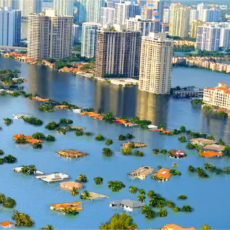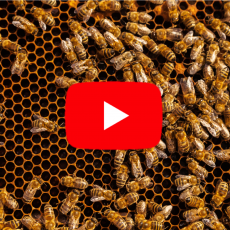
Last week, we looked at the sustainable limit we need to reach in order to prevent our planet from increasing in temperature. This week, we look at the key players who are providing information, support, and advances in the science of climate change. Collectively, these organizations have the largest impact on helping us to limit the effects of climate change.
While our politicians argue and fight over climate policy, not all of us can jump on a plane to Cancun when the reality of the climate crisis hits. Thankfully, we don’t have to wait for politicians to look out for our future. A number of public and private organizations have taken up the mantle to move forward on education, new technology, and sustainable policy.
UNEP
The United Nations Environment Programme (UNEP) is particularly involved with climate science and has multiple programs committed to the future. The standout being the Sustainable Development Goals. While largely uninfluenced by global politics, there is still a stigma from governments when recommendations differ from their own political agendas—and political agenda is the single most damaging point to organisations committed to sustainability.
WMO
Founded in 1950, the World Meteorological Organization (WMO) is a specialized agency of the United Nations responsible for promoting international cooperation on atmospheric science, climatology, hydrology, and geophysics. Their mandate states that, “As weather, climate and the water cycle know no national boundaries, international cooperation at a global scale is essential for the development of meteorology, climatology, and operational hydrology as well as to reap the benefits from their application. WMO provides the framework for such international cooperation.”
IPCC
In 1988, the United Nations Environment Programme and the World Meteorological Organization joined forces to establish the Intergovernmental Panel on Climate Change (IPCC). With endorsement from the United Nations General Assembly, the IPCC begin their work. The IPCC is dedicated to providing the world with objective scientific information relevant to understanding the scientific basis of the risk of human-induced climate change; its natural, political, and economic impacts and risks; and possible response options.
While it would be difficult to rate which of these organizations is the more important, the IPCC certainly has the most scientific knowledge behind it. Think of it like the All Star team of Climate Scientists. The problem with this, though, is that many governments, much like the fans in pro sports, treat this as purely an exhibition. The US is certainly one of these as it picks and chooses what to listen to based on political agenda and financial influence.
UCS
The Union of Concerned Scientists (UCS) was formed at the Massachusetts Institute of Technology in 1969 to “initiate a critical and continuing examination of governmental policy in areas where science and technology are of actual or potential significance” and to “devise means for turning research applications away from the present emphasis on military technology toward the solution of pressing environmental and social problems.”
EPA
The Environmental Protection Agency (EPA) mission is to protect human health and the environment in the United States. It began operations in 1970 after President Nixon signed an executive order that was ratified by the House and Senate. The administrator of the EPA is appointed by the President, approved by the Senate, and currently has annual budget of over $9 Billion (2020). The US is split into 10 regions that have regional offices responsible for implementing the agency’s program. More than half of the agency’s employees are engineers, scientists, and environmental protection specialists.
Once the proud watch dog for our environment in the US, the EPA became less effective in the recent past by becoming embroiled in US politics. In the last 20 years, several scientists reported having political interference in their work, with nearly half reporting more prevalent interference in the last 5 years. In recent months, with the advent of a fresh administration, efforts have been made to course correct.
OECD
Founded in 1961, the Organisation for Economic Co-operation and Development (OECD) is an international organisation of 37 member countries that works to build better policies for better lives. Their goal is to shape economic progress and world trade to foster prosperity, equality, opportunity, and well-being for all.
Food Alliance
Food Alliance works to define and promote sustainability in agriculture and the food industry, and to ensure safe and fair working conditions, humane treatment of animals, and careful stewardship of ecosystems. Food Alliance started as a project of Oregon State University, Washington State University, and the Washington State Department of Agriculture, and was incorporated as an independent non-profit organization in 1997.
EDF
The Environmental Defense Fund (EDF) is one of the world’s leading environmental organizations that brings together people to solve the most complex environmental problems from a number of different angles. Founded in 1967, it is a United States-based nonprofit that relies heavily on donations and support from members, including a number of activists that are vital to helping protect our environment.
Who else?
Companies themselves are starting to take responsibility for saving the planet, and we would be remiss not to acknowledge them here. From the heavy hitters who are transitioning their data centers to renewable energy, to service and delivery players who are optimizing the distribution infrastructure into carbon neutrality, to the wonderful startups and small businesses who have ethics and sustainability committed into their foundations.
Next week we look at transitioning to a sustainable lifestyle.
Part VI of our Climate Change Series that looks at climate history, consequences, policy and future outlook.



